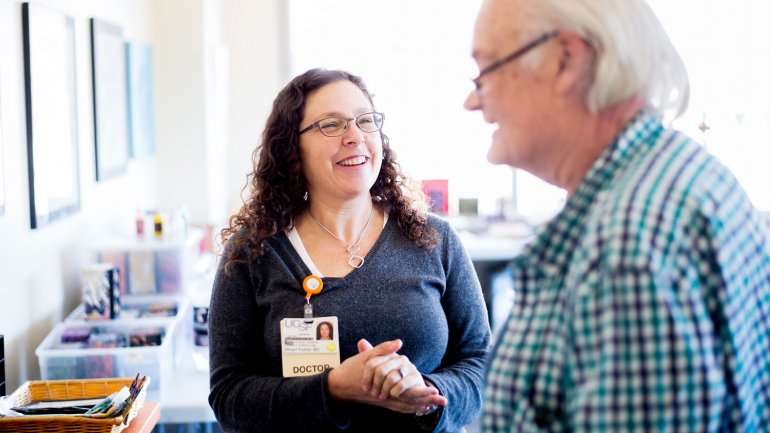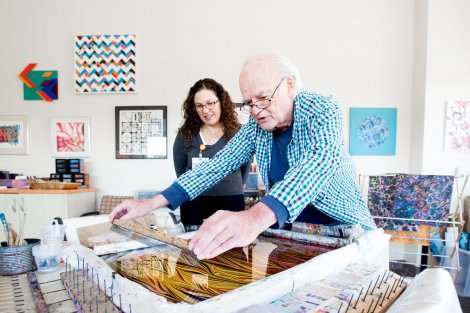Tailoring medical care for the homeless

When Margot Kushel, MD, first met David Sandow 13 years ago at Zuckerberg San Francisco General Hospital (ZSFG), he was homeless and sleeping in a van despite having had one bypass surgery and needing another.
Kushel's first interaction with Sandow was helping him to receive the medication he needed. But her assistance didn't end there – she eventually aided him in finding low-income housing in Mission Bay.
Sandow, who now has been in the housing for 10 years, said he couldn't have turned around his life without the consistent help from Kushel.
"I became a different person in meeting her," he said. "All of this wouldn't have happened without Dr. Kushel – without her efforts and her persistence in the face of someone who really didn't care about getting help at all."
Too sick for the street, not sick enough for hospital
Kushel's research, clinical and personal work with homeless patients stretches back to the 1990s when she was a medical resident at ZSFG. She saw first-hand the special problems affecting patients who were homeless, including a host of health problems caused by the strain of living on the street without proper food, shelter or regular medical care.
"These patients are too sick for the street, but often not sick enough for the hospital," Kushel said. She noted that while many discharged patients can recuperate at home – perhaps with the help of home nurses, oxygen or other measures – homeless patients don't have that option. "It's hard to have home care when you don't have a home," she said.

Kushel – now a professor of Medicine in the Division of General Internal Medicine at ZSFG and a core faculty member in UCSF's Center for Vulnerable Populations – has conducted groundbreaking research that has informed interventions to provide homeless patients with better care and to reduce their hospital admissions and stays for non-critical health problems.
Translating research into interventions
One such intervention is the Medical Respite and Sobering Center. Working with the San Francisco Department of Public Health, Kushel helped to create this facility for homeless patients who are too sick to be in a shelter or on the streets, but could be cared for outside of the hospital. Without the respite center, though, these patients would need to remain hospitalized, she said.
Along with the appropriate medical treatment for homeless patients, the center also provides services such as referral to primary care, substance abuse and mental health referrals, and assistance in obtaining housing and social services.
Kushel's work has also helped form the evidence base for the Permanent Supportive Housing (PSH) model, known locally as Direct Access to Housing. San Francisco's leadership on this issue has been instrumental in making PSH the leading national response to chronic homelessness.
Kushel, along with many of her colleagues, continues to develop interventions to improve health outcomes for the homeless, particularly among older individuals over 50.
Her research has found that homeless people in their 50s suffer geriatric conditions that usually would appear in people who are 20 to 30 years older.
"The homeless population is older than it used to be, and that brings with it a whole host of additional concerns," Kushel said. "We're working hard to find solutions to what many see as an intractable problem."














